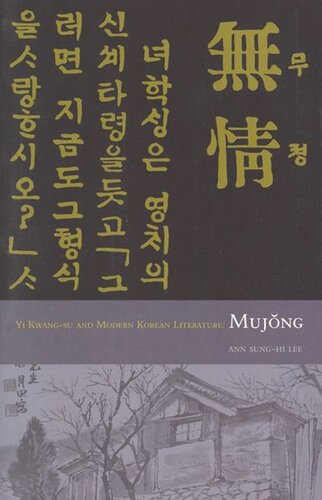

Most ebook files are in PDF format, so you can easily read them using various software such as Foxit Reader or directly on the Google Chrome browser.
Some ebook files are released by publishers in other formats such as .awz, .mobi, .epub, .fb2, etc. You may need to install specific software to read these formats on mobile/PC, such as Calibre.
Please read the tutorial at this link: https://ebookbell.com/faq
We offer FREE conversion to the popular formats you request; however, this may take some time. Therefore, right after payment, please email us, and we will try to provide the service as quickly as possible.
For some exceptional file formats or broken links (if any), please refrain from opening any disputes. Instead, email us first, and we will try to assist within a maximum of 6 hours.
EbookBell Team

4.1
30 reviewsYi Kwang-su (1892–1950) was one of the pioneers of modern Korean literature. When the serialization of Mujong (The Heartless) began in 1917, it was an immediate sensation, and it occupies a prominent place in the Korean literary canon. The Heartless is the story of a love triangle among three youths during the Japanese occupation. Yi Hyōng-sik is a young man in his mid-twenties who is teaching English at a middle school in Seoul. Brilliant but also shy and indecisive, he is torn between two women. Kim Sōn-hyōng is from a wealthy Christian family; she has just graduated from a modern, Western-style school and is planning on continuing her studies in the United States. Pak Yōng-ch'ae is a musically gifted young woman who was raised in a traditional Confucian manner; due to family misfortune, she has become a kisaeng but remains devoted to Hyōng-sik whom she knew as a child. The Heartless goes beyond the level of romantic melodrama and uses these characters to depict Korea's struggles with modern culture and national identity. A long critical introduction discusses Yi Kwang-su's life and work from his birth in 1892 to the publication of his first novel The Heartless in 1917. It contains in-depth analyses of the novel, Yi Kwang-su's literary theory, and early short stories.